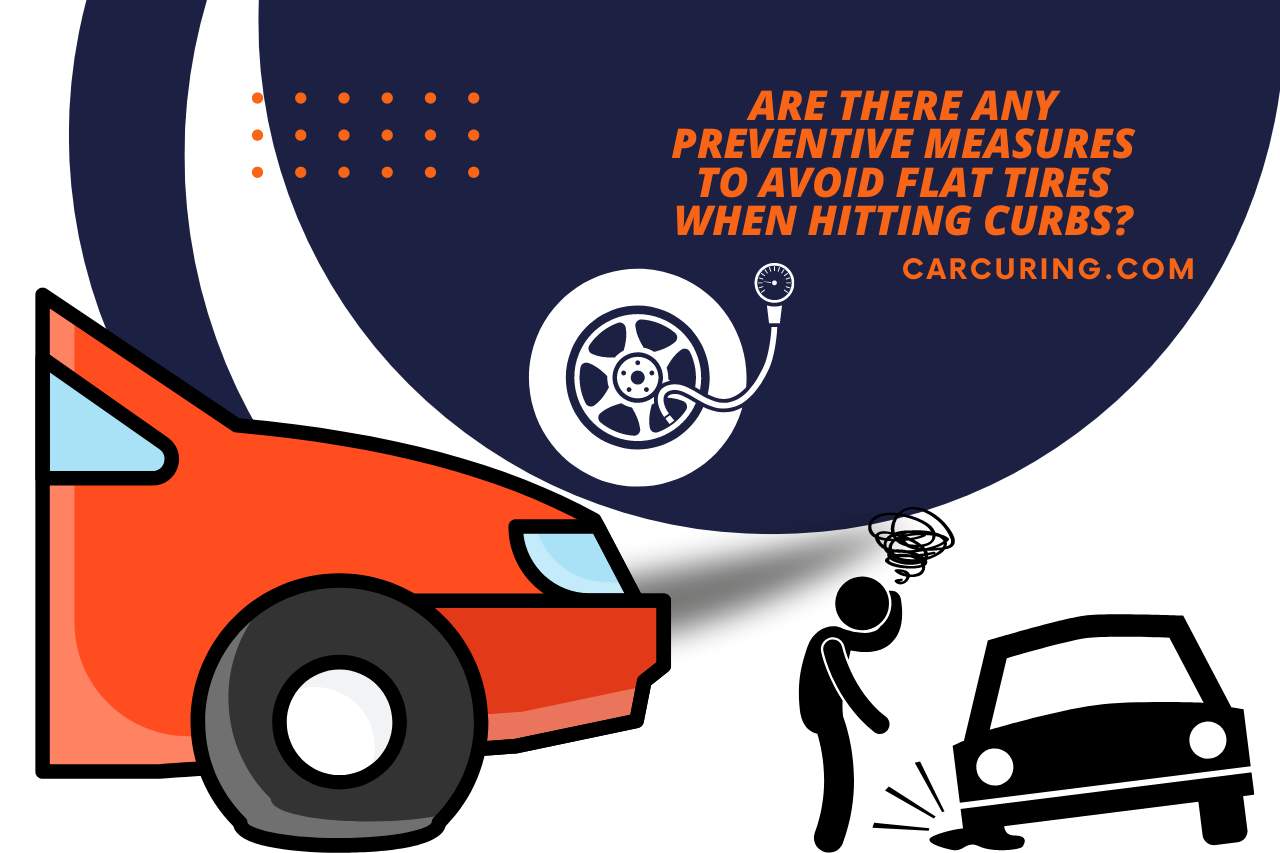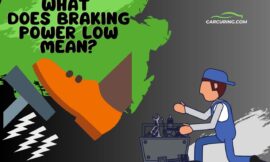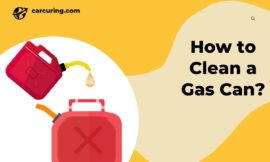Can hitting a curb cause a flat tire? The answer is yes. hitting a curb can cause a flat tire. The impact of a car hitting a curb might give the tire a strong shock or perhaps rupture it. The force of the impact can also damage the tire’s sidewall, causing a bulge or bubble to form. Over time, this can weaken the tire, eventually leading to a flat tire. Even if you don’t immediately detect any obvious damage after striking a curb, checking your tires is crucial. If you do spot damage, it’s best to have the tire inspected and repaired or replaced as soon as possible to prevent further issues.
Can Hitting a Curb Result in a Flat Tire?
The answer is yes. Hitting a curb can result in a flat tire. The tire may endure a quick impact when a car meets a curb, resulting in a puncture or even a burst tire.
The sidewall of the tire might sustain damage from the accident that is not immediately visible.
It can degrade the tire, resulting in flats or even blowouts while driving. Rarely, running into a curb could harm the car’s suspension or wheel.
It may result in the tire becoming out of alignment, resulting in unequal wear and tear and possibly leading to a future flat tire.
Even if you don’t immediately detect any apparent damage after striking a curb, checking your tires is crucial.
To avoid such problems in the future advisable to get the tire examined, fixed, or changed as soon as you see the damage. It’s always better to be safe than apologize for your car’s performance and safety.
What are the Potential Causes of a Flat Tire After Hitting a Curb?
Possible causes of a flat tire after hitting a curb include cuts or punctures caused by the impact, harm to the tire’s sidewall, and harm to the vehicle’s wheel or suspension.
Even if a tire or wheel has no outward signs of damage, hitting a curb can internally weaken the tire over time, increasing the risk of a blowout or flat while driving.
It’s crucial to check your tires and wheels after hitting a curb and get them serviced, repaired, or replaced to preserve your safety on the road.
What Signs Should you Look for to Determine If your Tire is Flat After Hitting a Curb?
You should also look for sidewall bulges or bubbles, a hissing sound or air leaking from the tire, uneven tread wear, and tread damage if your tire looks to have noticeably lost air after hitting a curb.
Your car’s performance or handling may also have changed, as evidenced by vibrations tugging to one side or trouble steering.
If you believe your tire may be flat or damaged after hitting a curb, you must thoroughly inspect it to prevent further damage or accidents. It must be repaired or replaced quickly.
What should You Do Immediately After Hitting a Curb to Prevent a Flat Tire?
After hitting a curb, it’s essential to prevent a flat tire immediately. First, inspect the tire for visible signs of damage or deflation, and check for any unusual vibrations or handling issues while driving.
Have the tire checked out by a professional and repaired or replaced if necessary if you see any damage symptoms. If there is no evident damage, ensure the tire pressure is at the right level.
Maintaining adequate tire pressure is crucial for your safety on the road since driving with low tire pressure increases the danger of a blowout or flat tire.
Can you Repair a Flat Tire Caused by Hitting a Curb, or is Replacement Necessary?
The damage caused when a tire blows out after striking a curb will decide whether it can be fixed or a replacement is necessary.
A patch or plug can patch up minor wounds or punctures on the tire. If the tire’s sidewall, tread, or internal structure shows substantial wear, the tire may need to be changed. Suggested that you have a qualified tire repair expert inspect the tire to see whether it can be mended or if a new tire is required.
Ignoring a flat tire or curb damage while driving can be risky and raise the possibility of a blowout or disaster. Therefore, it’s imperative to take the appropriate steps and refrain from using a damaged tire while driving.

Are there Any Preventive Measures to Avoid Flat Tires When Hitting Curbs?
You can take several preventive measures to avoid flat tires when hitting curbs.
Drive carefully and avoid hitting curbs or other obstacles whenever possible. If you need to drive over a curb, approach it slowly and at an angle to reduce the impact.
Keep your tires properly inflated and maintained to ensure that they can withstand the impact of hitting a curb. Consider installing protective rims or wheel covers to help prevent damage to your wheels and tires.
To minimize more damage and maintain your safety on the road, carefully examine your tires and wheels when you hit a curb. Have them professionally inspected and fixed as necessary.
How To Keep From Hitting Curbs?
You can take a lot of steps to prevent colliding with curbs.
First, pay attention to the road and avoid texting, eating, and adjusting the radio. Give yourself enough time to react; if necessary, maintain a safe distance from other vehicles and obstructions.
When parking, take your time and approach the curb slowly and at an angle to reduce the impact. Use your mirrors and backup camera, if available, to help guide you into parking spaces.
Consider taking a defensive driving course to improve your skills and awareness.
Finally, if you accidentally hit a curb, remain calm, scrutinize your tires and wheels for damage, and have them professionally inspected and repaired to maintain safety and prevent further damage.
Can Hit A Curb Damage A Wheel Bearing?
The answer is yes. Hitting a curb can damage a wheel bearing. The impact of hitting a curb can cause the wheel bearing to become misaligned or damaged, leading to various problems, including noise, vibrations, and uneven tire wear.
To protect your safety and stop future harm to your car, a professional must inspect and fix any suspected wheel bearing damage.
Can Hit A Curb Damage A Wheel Bearing?
The answer is yes. Hitting a curb can damage a wheel bearing. The impact can cause misalignment or damage to the bearing, resulting in noise, vibrations, and uneven tire wear.
Other signs of wheel bearing damage include steering wheel wobbling and reduced performance. Have a professional inspect your wheel bearing if you suspect damage after hitting a curb.
Neglecting a damaged wheel bearing can lead to further damage or even failure, compromising your safety on the road.
Watch this one,
Video Credits – FCP Euro
You May Also Like
- What Does Braking Power Low Mean? (Root Cause & Solution)
- Are Mud Flaps Worth It? Maximize Your Vehicle Protection!
- What Size Rims Do I Need for 35 Inch Tires? All You Need To Know


![[DIY Guide] Resetting the Low Washer Fluid Light and Saving Money](https://carcuring.com/wp-content/uploads/2023/03/how-to-reset-low-washer-fluid-light-270x162.jpg)